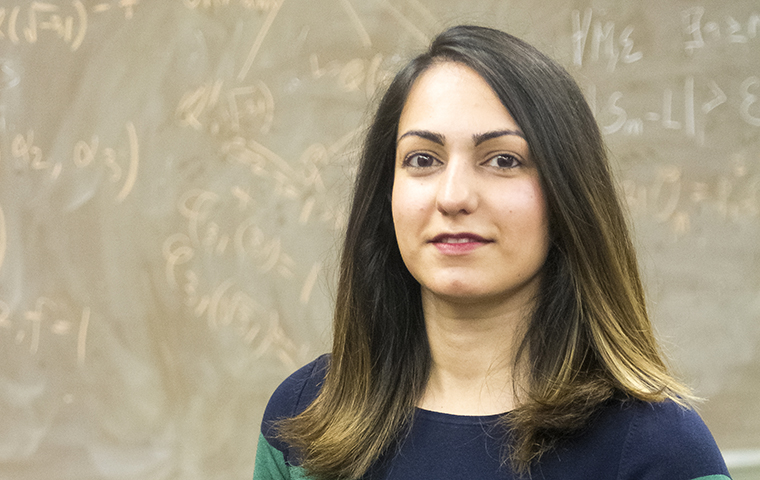
A Hacker’s Code
Assistant professors Shiva Houshmand and Sukanya Manna teamed up with the Markkula Center to give computer science classes an ethical framework.
Assistant professor of computer science Shiva Houshmand recalls a moment from one of her classes when a student mentioned a security gap he’d discovered online.
The bug was on a departmental page of the Santa Clara University website and, while not too serious, it allowed users of the website to perform unintended tasks.
“Well, what did you do about it?” Houshmand asked him, expecting the student to say he reported it. Instead he shrugged his shoulders and said, “Nothing.”
This was a big problem for Houshmand. If the student had seen the door of his friend’s house open, wouldn’t he have told them? Why was a digital door at his university any different?
While frustrating, it was not altogether uncommon in the field of computer science. Coders and hackers are often motivated to figure out if or how they can do something online, but the ethical ramifications aren’t always sufficiently explored.
“We never talk about the social impact of what we’re doing and the responsibility we have,” Houshmand says. “The students who graduate are going to write code that goes into our medical devices, our airplanes, in self-driving vehicles. Those are the people responsible for [the resulting] social impact.”
And this extends beyond web security into data science. Artificial intelligence and machine learning are being used more and more to automate processes like resume screening for employers and in criminal sentencing by judges, like the controversial COMPAS tool in Wisconsin, which has resulted in some puzzlingly harsh sentences for defendants. The theory is that artificial intelligence will extract bias from important decisions. In practice, however, the inherent bias of developers often influences the code, without any checks or balances.
Recently, Houshmand and Sukanya Manna, an assistant professor of mathematics and computer science, set out to address some of these issues. Along with the Markkula Center for Applied Ethics, Houshmand and Manna started to integrate ethics training into their computer science curriculum.

Sukanya Manna
The lessons started fairly simple. Houshmand, who teaches classes on computer security, asked students to bring in news articles detailing security breaches. Together, they worked their way back to how the problem started and tried to determine how it could’ve been prevented.
Meanwhile, Manna began integrating ethics real-world projects into data science curriculum. She also collaborated with Irina Raicu, Subramaniam Vincent, and Brian Green of the Markkula Center to develop case studies for future use in her courses.
The goal was to have students think about ethical outcomes during the coding process, actively examining data sets and testing them for possible bias. “If I can remove one of these (pieces of data) and re-run the algorithm,” Manna says, “how does this affect the computer’s prediction?”
This active challenging of processes and data is key when working in startups, where speed is often prioritized over precision. Speaking up in the middle of a stressful launch isn’t easy, but it’s important.
“We must ask, ‘How is the data we’re collecting going to affect everyone? What is this tool going to be used for?’ These are things every software engineer needs to think about,” Houshmand says. “It’s not just the role of the manager or higher-ups—they’re often concerned with hitting their targets—but every individual at that company.”
Ethical frameworks will also be applied to the work completed in class. This quarter, projects in Manna’s classes will be combed for instances when ethical questions could be flagged. Together, students will examine these examples to see if there was a better way to address the problem.
The curriculum changes developed by Houshmand and Manna are part of the Responsible Computer Science Challenge, organized by Mozilla. The multi-year competition challenges universities to develop innovative coursework. Through the Mozilla competition, Houshmand and Manna hope that the adjustments they’ve made to their courses with the help of the Markkula Center can serve as best practices for other universities.
“I’m even more excited than the students, just to see how things go,” Manna says. “This is the first time we’re trying to integrate ethics into the formal projects, and I just want to see how the students respond when they have to think from this angle.”